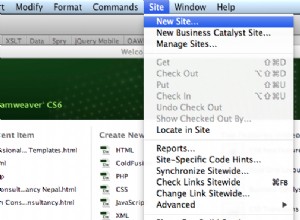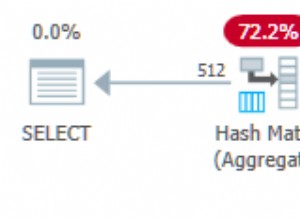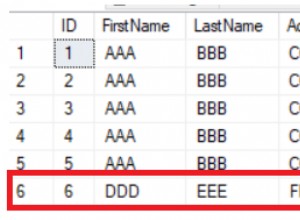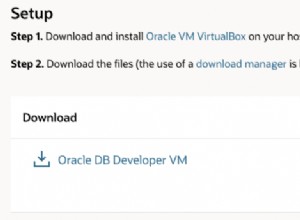Se utilizzi SQL Server 2012, puoi utilizzare LAG per confrontare il valore con la riga precedente e puoi utilizzare SUM e OLTRE per registrare le modifiche.
with C1 as
(
select custno,
moddate,
who,
lag(who) over(order by moddate) as lag_who
from chr
),
C2 as
(
select custno,
moddate,
who,
sum(case when who = lag_who then 0 else 1 end)
over(order by moddate rows unbounded preceding) as change
from C1
)
select row_number() over(partition by change order by moddate) as RowID,
custno,
moddate,
who
from C2
Aggiornamento:
Una versione per SQL Server 2005. Utilizza un CTE ricorsivo e una tabella temporanea per l'archiviazione intermedia dei dati su cui è necessario eseguire l'iterazione.
create table #tmp
(
id int primary key,
custno int not null,
moddate datetime not null,
who varchar(10) not null
);
insert into #tmp(id, custno, moddate, who)
select row_number() over(order by moddate),
custno,
moddate,
who
from chr;
with C as
(
select 1 as rowid,
T.id,
T.custno,
T.moddate,
T.who,
cast(null as varchar(10)) as lag_who
from #tmp as T
where T.id = 1
union all
select case when T.who = C.who then C.rowid + 1 else 1 end,
T.id,
T.custno,
T.moddate,
T.who,
C.who
from #tmp as T
inner join C
on T.id = C.id + 1
)
select rowid,
custno,
moddate,
who
from C
option (maxrecursion 0);
drop table #tmp;




